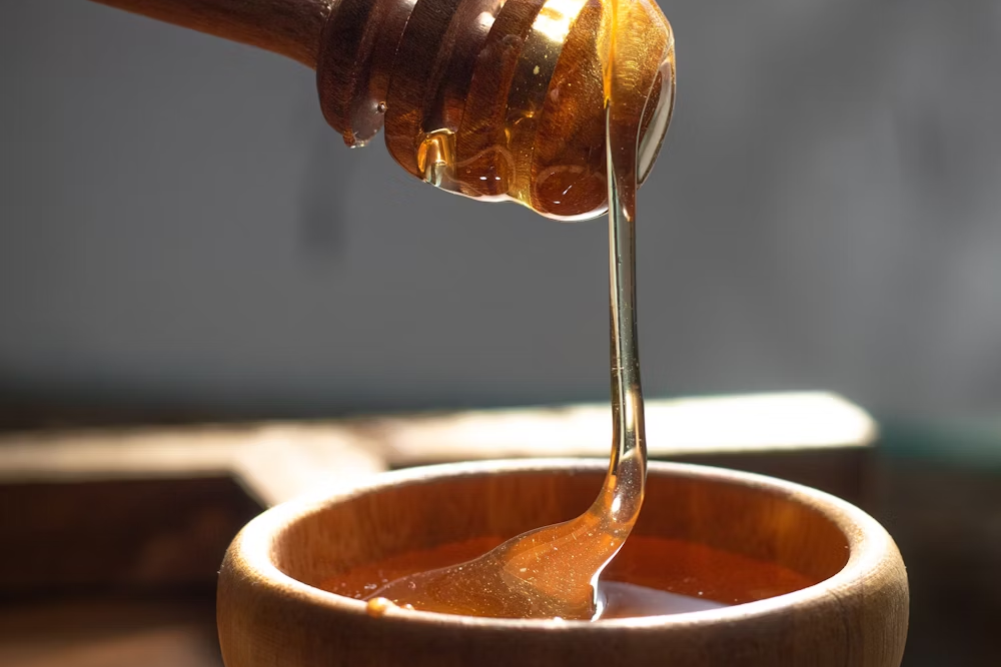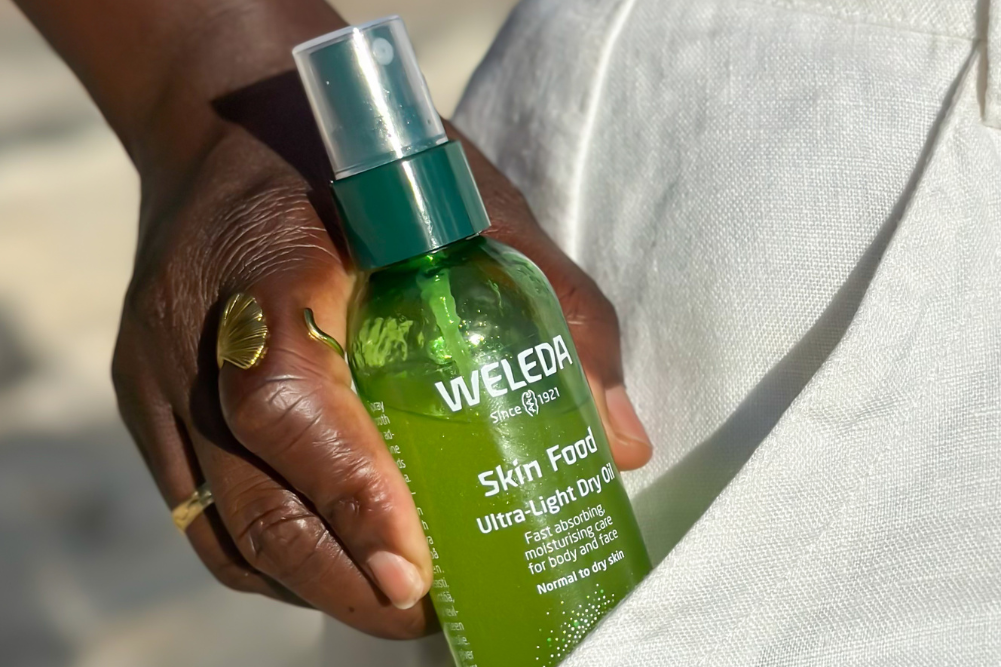How to become a Vedic beauty
Your skin is a protective barrier between your inner world and the outer world, and a mirror for your internal health. The outer signs of beauty — your skin, hair and nails — are not just superficial measures of beauty: they are direct reflections of your overall health. If you are in good health, have good digestion and metabolism, eat a good-quality diet and are happy and fulfilled in your life, your eyes and skin will reflect that. No amount of facial massage or application of makeup by a skilled beautician can hide unhealthy skin. A healthy skin will always look attractive even when there is no makeup.
Customise your skincare
Ayurveda is an ancient medical system from the Vedic civilisation of India. An Ayurvedic approach offers the ultimate in customised skincare, as it caters to individual needs. Ayurveda teaches that health is maintained by the balancing of three subtle energies known as doshas; individually, they are vata, pitta and kapha.
A dosha is a functional intelligence that commands the tissue of the body and gives the body its vast functional capability. Doshas have no obvious material qualities and cannot be objectively studied, yet their influence in the body is all pervasive. They are the unseen intelligence orchestrating the physiological processes occurring in the human body. They are made up of mahabhutas (great elements), namely space, air, fire, water and earth.
- Vata. Made up of space and air. Responsible for all movement, communication and transport in the body.
- Pitta. Made up of mostly fire and some water and air. Responsible for digestion, hormone activity, enzyme activity in the body and all conversion processes.
- Kapha. Made up of water and earth. Governs structure, stability and lubrication of membranes and joints, and wherever there is movement.
By identifying your skin type according to your predominant dosha, you then know what healing is appropriate for you and how to maintain beautiful skin. You can seek to identify your skin type using the table here and then match your skincare regime as follows.
Your Ayurvedic skin type
| Vata body type | Vata imbalance | Pitta body type | Pitta imbalance | Kapha body type | Kapha imbalance |
| Thin, fine pored, darker complexion with a whitish or greyish hue
|
Lack of tone or lustre
|
Fair, peachy, coppery or freckled complexion
|
Rashes, inflammation, itching
|
Thick, moist, pale
|
Dull, sluggish, congested skin
|
| Cool to touch, especially in the extremities (hands and feet)
|
Rough patches, chapping and cracking, flaky in patches
|
Soft, lustrous, and warm
|
Oily “T” zone
|
Soft and cool to the touch, generally
|
Enlarged pores
|
| Climate sensitive
|
Dry rashes
|
Chemically sensitive
|
Premature wrinkling
|
Tones well, ages well
|
Blackheads or large white pustules or cystic formations
|
| Delicate, light and refined | Corns and calluses
|
Yellow, pustular acne, blackheads, whiteheads, general excessive oiliness in “zones”
|
Clammy
|
||
| Dry eczema
|
Discolouration of natural pigmentation
|
Thick, oily secretions
|
|||
| Dry wrinkles | Leathery skin | Excessive oil | |||
| Dark circles under eyes | Hot to touch |
Vata skincare
- If you have vata skin, your skin doesn’t retain as much moisture as other skin types. Also, it is prone to drying, early wrinkling and early ageing. For that reason, adding moisture is a priority.
- Eat warm, moist and slightly oily food (eg with ghee).
- Favour sweet, sour and salty tastes (naturally sweet, like fruits and dates, not refined sugar) as they balance vata and nourish the vata skin.
- Provide added nourishment to your skin by including organic milk if OK for you (non-homogenised, hot or warm), whole grains and green, leafy vegetables in your diet.
- Avoid drying foods like crackers.
- Drink 6–8 glasses of warm (not cold) water for internal hydration throughout the day.
- Avoid any cleansing products and soaps that dry the skin.
- For vata skin to stay youthful, skincare products should be very nurturing, otherwise it may be susceptible to wrinkles and premature ageing. Include warming essential oils or herbs that can nourish the skin and rehydrate it.
- A warm-oil Ayurvedic self-massage is excellent for keeping skin lubricated.
- Regularity of daily routine in diet and lifestyle (regular meal time, sleep time) is an essential holistic approach for vata skincare.
- Get plenty of rest so your mind and your body have the opportunity to destress and rejuvenate.
- As vata imbalances such as worry, stress, fear and anxiety can affect vata skin, making it look aged and tired, meditation is really important for you.
Pitta skincare
- If you have pitta skin, your treatment program should focus on calming your sensitive skin. Pitta skin is quite sensitive to sun and chemicals, so you need to be very careful about these.
- The pitta skin type needs both cooling and nurturing.
- You’ll want to stay away from excessive heat and too much direct sunlight.
- Use skincare products that help enhance resistance to the sun.
- Avoid tanning treatments and therapies that expose your delicate, sensitive skin to steam for extended periods of time.
- Stay away from harsh, synthetic cosmetics; they can damage your sensitive skin and cause breakouts.
- One of the best ways to calm your skin is by calming the tactile nerves. An Ayurvedic massage using special herbal oils is one way of doing it. Or use cooling oil, such as coconut oil, for the daily massage.
- If you have a pitta skin type you will need sweet, bitter and astringent tastes in your diet, as found in sweet, juicy fruits and cooked greens.
- Use rosewater to clean your face and soak eye pads in rosewater and keep on your eyes, especially in summer.
- Avoid hot, spicy foods and an excess of deep-fried foods; they add heat to an already fiery constitution.
- Cook with cooling spices such as coriander, fennel and licorice.
- Take extra care to protect your skin when you go out in the sun. Use gentle, natural skincare products for cleansing and moisturising.
- Provide added lipid support, such as facial skin oil, as needed.
Kapha skincare
- Kapha skin is more prone to clogging and needs more cleansing than other skin types. Proper cleansing is the most important thing you can do for kapha skin. Frequent deep-cleansing should be the basis of your beauty regimen.
- Kapha skin, because of its thickness and oiliness, is more prone to accumulate ama (toxins) under the skin. People with kapha skin need to do detoxification on a regular basis, both internal detoxification and external detoxification to flush toxins from the skin.
- Cleanse your skin twice every day; exfoliate with a mud-mask at least once a week.
- Scrubbing the skin with a gentle exfoliating clay can help external cleansing. Kapha skin types may also need to take herbal formulations to cleanse the skin from within.
- The oiliness of kapha type skin needs a diet that is warmer, lighter, less oily and free of heavy or hard-to-digest foods, like fatty meats, cheeses and rich desserts.
- Eating more bitter, astringent and pungent tastes help stimulate digestion and balance kapha skin.
- Avoid too many sweet foods or deep-fried foods; they add to the oiliness in the skin.
- Exercise every day to improve circulation and help purify the skin through the sweating process.
- A regular warm-oil massage with heating oil, such as mustard oil, can also help circulation.
- Eat organic vegetables and fruits to help cleanse the body from within.
- Cook with warming spices such as ginger and black pepper to stoke the digestive fire and inhibit the accumulation of ama inside the body.
- A little ginger, with some salt and lime juice taken before meals will help to increase your characteristically sluggish digestive fire.
- Avoid greasy, clogging skin creams.
- Take warm baths often and use gentle cleansers to open the skin pores.
- Avoid becoming constipated.
- Take herbal formulations to cleanse the skin from within.
Inner beauty care
Happy, positive, loving, caring individuals have a beauty that is far more than skin deep. Conversely, we all experience the quick effect on our skin of fatigue and stress.
Inner beauty is authentic beauty, the kind that shines through from your soul, or inner state of being. Inner beauty comes when your hands, heart and head are in harmony, when you know who you are and are fulfilling your life’s purpose, and being successful in that. This takes away emotional confusion, loss of confidence, stress and worry that comes with inner confusion, or when you are at odds with what you think you need to do in life. Inner peace is the foundation of outer Beauty.
Maintain your self-esteem, confidence and a warm, loving personality by paying attention to your lifestyle and daily routine and practising effective management of stress. Kindness, friendliness and sincerity naturally attract people. Being uptight and stressed and spilling it out on others makes people want to walk the other way, regardless of your facial structure, body weight or other outer signs we associate with attractiveness.
Be loving and compassionate; be at peace with yourself — these traits will go a long way toward making you beautiful and give a beautiful skin in long run.
Stress & skin
Mental, emotional or physical stress starts a chain reaction that ends in drying out the moisture in your skin. Thinning, dryness and the shrinking of the micro-channels that carry nutritive fluid to the skin result in wrinkles and stress lines, drying out of skin moisture and rough, aged skin. Have you ever noticed that when you are stressed, you develop more pimples? This shows the connection between emotions and the skin.
If emotional stress becomes chronic, the result can be acne, eczema, sun sensitivity and other skin problems. This is because stress causes your body to produce cortisol and other hormones, telling your sebaceous glands to produce more oil. Oily skin is more prone to acne and other skin problems. Stress can also worsen your existing skin problems. Stress can also make it harder for skin problems to heal.
Climate & skin
The vata season is the windy weather, pitta season the hot summer and kapha season cold and wet. Even though the seasons are fixed, we can have vata-like days with cold, drying and bitter winds in winter, and in summer we can have some kapha days that are wet and humid.
Take care of yourself in different seasons. For example, if your dosha is high in pitta, keep cool in summer; avoid foods that increase pitta, like chilli. For kapha people, watching their sleep patterns and eating foods to keep kapha’s natural tendency to slow down, especially in kapha weather, is important. Vata types will find that long hikes on a windy day may leave them worn-out and distressed and eating vata-reducing foods during vata season can help stabilise the body and the mind.
By understanding the cycles and rhythms of nature and making some simple lifestyle adjustments, it is possible to reset the physiology and have good health and skin.
Digestion & skin
It is very easy to understand lifestyle and dietary factors with Ayurveda. Diet has a great role to play in your health. For good care of skin, don’t aggravate your pitta (body heat). Eat a lot of green vegetables and leafy vegetables with a bitter taste. Never skip your meals or overeat.
We talk about six tastes in Ayurveda: sweet, sour, salty, pungent, astringent and bitter. Always eat balanced proportions and have all the six tastes in your diet. The Western diet generally does not have much bitter, pungent and astringent tastes in food, so you need to be mindful to add these tastes in a way that’s appropriate to your body type and current imbalance.
Tips for all skin types
- Topical use of turmeric powder paste clears all marks from the skin. Use natural yoghurt, rosewater or sesame oil for making a paste.
- Lemon juice mixed with honey is very useful, working effectively on wrinkles.
- Neem oil helps in dandruff and itching overhead acnes. Neem is also known for its anti-bacterial and anti-viral effects and as a very good blood purifier. If you suffer from acne, try taking neem powder or use neem oil topically. Use the leaf of the neem tree, which is very bitter and cleansing for the skin. It flushes heat and inflammatory toxins from the body.
- Aloe vera juice is also helpful for many skin problems and keeps the skin looking younger. Take aloe vera every morning on an empty stomach. Aloe vera is known to keep you looking healthy and young. It helps to clear excess pitta, nourishes plasma tissue and cleanses the liver.
- Use rosewater to wash your face. Its mild astringency tones, cleans and strengthens the skin and you smell fantastic afterwards.
- Ayurveda recommends a daily oil massage using cold-pressed black sesame, coconut or almond oils. The oils are lightly warmed and you massage your whole body, leaving the oil on for 20 minutes and then washing it off in a warm shower. This leaves your skin feeling soft, supple and nourished. The skin actually absorbs the oil and nourishes the tissues. If you suffer from dry skin and have a tendency to feel nervous, use sesame oil as it contains calcium and is warming, heavy and calming. If you suffer from a light skin prone to sunburn and rashes, use coconut oil. This can help to clear some of the heat toxins that are building up under the skin.
- Don’t wash with soap too much — it’s just too drying. Soap use depends on your natural body aroma and the amount of exercise you take etc, but, as a general rule, the sebaceous glands secrete protective and nourishing oils.
- Avoid acidic, salty, spicy and greasy food in your diet. Include good skin foods, such as chlorophyll-rich green foods, red grapes, pomegranates, almonds and dates.
Neerja Ahuja has been practising Ayurveda since 2001, specialising in diet/lifestyle management and Ayurvedic panchakarma detox treatments, and owns and operates Ayurveda Awareness. Find out more at ayurveda-awareness.com.au or by calling +61 8 6262 2274.







